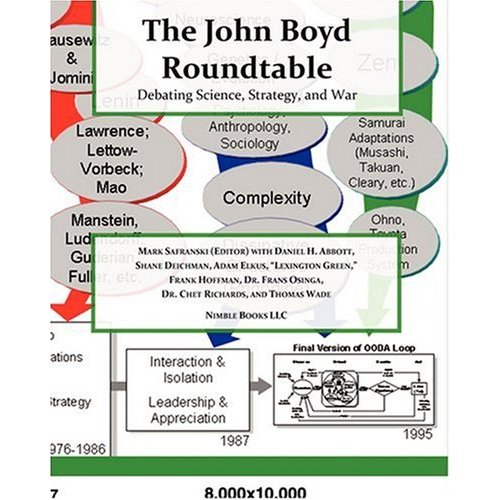In a bit of shameless self-promotion – but also because the state of America’s intelligence community merits wider discussion – I have an op-ed up at Pajamas Media:
Why Leon Panetta May Be The Right Man For CIA Chief
Given the extent to which President-elect Barack Obama previously positioned himself on the left wing of the Democratic Party, his appointments in the areas of national security and defense have been remarkable in the degree to which the worst fears of conservatives have not come to pass. Robert Gates as secretary of defense would have been a dream pick for a McCain administration and former commandant of the Marine Corps Gen. James Jones is someone I wish President Bush had chosen as his wartime national security adviser. The immediate howls of protest from liberal Senate Intelligence Committee members and chairmen that greeted Leon Panetta’s nomination to head the CIA are genuine in their rage. For many reasons, conservatives and advocates of a reinvigorated, reinvented, depoliticized CIA may end up being quite happy with the tenure of Director Panetta
….The truth is that the CIA has been in an existential crisis since at least 1991 that has waxed and waned, but it never recovered the competence in clandestinity or the esprit de corps it enjoyed in its glory years under Allen Dulles or the brief revival ushered in by William Casey and Ronald Reagan in the 1980s. The CIA now bleeds talent to better-paying private military companies like CACI or Blackwater and engages in domestic political intrigue and gross waste like any other government agency. Post-9/11 “intelligence reforms” badly battered the CIA as an institution without building up its original core mission of HUMINT collection and strategic influence operations to a robust and dynamic capacity
Read the whole thing here.
There are of course, respected bloggers and experts with views of their own on Panetta’s appointment. Here is a sample:
…As I’ve noted before the incoming administration’s managerial experience is extremely limited and, frankly, I think they’re underestimating its importance. Now it may well be that lawyers and politicians are the best possible picks for these important roles to achieve the confidence of the departments they’ll head, the American people’s, and President Obama’s. If that’s right, we’ll be in for an interesting ride with the new administration. If it’s wrong, the downside risk is probably minimized by the civil bureaucracy.
As to the Panetta appointment itself, it is unconvincing. The C.I.A. directorship is a diminished post, no longer in charge of the full intelligence community and subordinate to the Director of National Intelligence (who will apparently be Dennis Blair, a retired admiral.) Still, the C.I.A. director has four important jobs: manage the White House relationship; manage Congress, particularly to obtain budgetary favor; manage the agency’s workforce and daily operations; and manage liaisons with other spy chiefs, friendly and unfriendly. Panetta is thoroughly qualified for the first two functions but unqualified for the latter two. He seems to have been selected as a kind of political auditor and consensus builder. He will make sure the White House is protected from surprises or risks emanating from C.I.A. operations; he will ensure that interrogation and detention practices change, and that the Democratic Congress is satisfied by those changes; he will ensure that all of this occurs with a minimum of disruptive bloodletting. All good, but it is not enough
…The point I was trying to make about the Panetta appointment was that although his hands are not tainted by any acceptance of torture, that alone is hardly a sufficient reason to appoint him. I have learned that our fellow blogger and my friend Michael Ledeen has said Panetta is a good choice, as have Richard Perle and Douglas Feith. Their arguments, that he is a good manager and can possibly clean up a highly ineffective and politicized CIA, hopefully has merit. Counterpoints, however, have been effectively made by J.G. Thayer, who writing on the Commentary magazine’s Contentions, blog…
 predecessor, disgraced ex-governor
predecessor, disgraced ex-governor  troubled strategy and command. Seeming backpeddling and soft-shoeing on the threats from Iran and
troubled strategy and command. Seeming backpeddling and soft-shoeing on the threats from Iran and
 few were initially skeptical and we had one certified critic ( though I had tried to recruit several more). Overall, it was the kind of exchange that makes the blogosphere special as a medium when it is at it’s intellectual best.
few were initially skeptical and we had one certified critic ( though I had tried to recruit several more). Overall, it was the kind of exchange that makes the blogosphere special as a medium when it is at it’s intellectual best. skills coupled with a genuine mean-streak that she can execute on live TV without looking like a cast-iron beeatch. That’s a neat trick that most VP and Prez candidates never master ( ask Bob Dole).
skills coupled with a genuine mean-streak that she can execute on live TV without looking like a cast-iron beeatch. That’s a neat trick that most VP and Prez candidates never master ( ask Bob Dole).